07 Mar2019
By Linda Minor
 Are you a new dean or department chair – or are you simply looking to advance your career as an academic administrator? The AACTE Leadership Academy covers essential topics, from managing finite resources to creating effective development and public relations programs, while helping to cultivate a supportive network of peers.
Are you a new dean or department chair – or are you simply looking to advance your career as an academic administrator? The AACTE Leadership Academy covers essential topics, from managing finite resources to creating effective development and public relations programs, while helping to cultivate a supportive network of peers.
Register now for AACTE’s Leadership Academy, June 23 – 27 in Pittsburgh, PA at the Renaissance Pittsburgh Hotel.
At AACTE’s Leadership Academy, you will
- Learn to articulate critical components of leadership, including styles, motivations, and a commitment to diversity and inclusivity, as they pertain to your own practice as a leader.
- Build a comprehensive understanding of the multiple roles and functions of your appointed position, particularly in an individual institutional context.
- Strengthen key leadership skills, enabling you to more effectively serve as both a team leader and member, manage time, develop inclusive environments, foster and promote diversity, resolve conflicts, and facilitate change.
- Engage in discussions, via small-group settings and collective sessions, to forge networks with other professionals in similar leadership positions.
04 Mar2019
By Brandon R.T. Frost

AACTE is now accepting applications from member institutions to join a new networked improvement community (NIC) focused on special education teacher recruitment and retention.
The shortage of special education teachers and the lack of diversity among all teachers have been well documented. Half of all schools and 90% of high-poverty schools struggle to find qualified special education teachers.
The aim of this NIC is to positively impact the special education teacher shortage and the lack of diversity in the special education teacher workforce in public schools. Participating institutions will identify a range of best practices related to increasing enrollment, strengthening partnerships with P-12 schools, and retaining special education teachers.
Read more about this new initiative on our website and in the Reducing the Shortage of Special Education Teachers NIC Charter.
Applications are due on April 1, 2019. Member institutions will be selected through a structured review process and notified in late April of 2019. An introductory virtual meeting will be held in May of 2019, and the first in-person convening will be held in the fall of 2019.
01 Mar2019
By Meghan Grenda
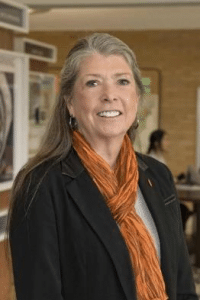 Kathryn Hildebrand, AACTE member and dean of Idaho State University (ISU) College of Education, passed away on Monday, February 25 after a battle with cancer.
Kathryn Hildebrand, AACTE member and dean of Idaho State University (ISU) College of Education, passed away on Monday, February 25 after a battle with cancer.
As a vital advocate for the educator preparation community, Kathy targeted her efforts toward creating strong partnerships with school districts in the region, which included promoting dual enrollment courses high school students could take to earn credits at the College of Education. Kathy pushed the agenda within the education community, with a focus on priorities that included course offerings through innovative technology, distance learning, and online models.
Kathy earned an undergraduate degree in psychology and a master’s degree in education from Stanford University where she was a track athlete. She holds a doctorate in physical education and curriculum and instruction from Florida State University. She served as dean of the College of Education at ISU since March 2018, having previously served in the same capacity at Troy University. She also served as the AACTE chief representative for the ISU College of Education.
27 Feb2019
By Ward Cummings
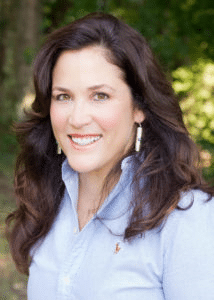 During the AACTE 2019 Annual Meeting in Louisville, Yolanda Carter, chair of the Kentucky Association of Colleges for Teacher Education (KACTE), met with me and AACTE Director of Marketing and Communications Jerrica Thurman to discuss a range of statewide education and teacher preparation issues. Carter shared with us how KACTE is working to further diversify the incoming teacher pool and the goals the state chapter plans to pursue in the months ahead.
During the AACTE 2019 Annual Meeting in Louisville, Yolanda Carter, chair of the Kentucky Association of Colleges for Teacher Education (KACTE), met with me and AACTE Director of Marketing and Communications Jerrica Thurman to discuss a range of statewide education and teacher preparation issues. Carter shared with us how KACTE is working to further diversify the incoming teacher pool and the goals the state chapter plans to pursue in the months ahead.
What are the pressing challenges in education and teacher prep in Louisville and Kentucky?
One of the bigger things is how to get all teachers on board with teaching in a culturally responsive way. How do we get more diverse teachers into the field and reconfigure the programs to get more students engaged? In Kentucky, the Board of Education has been merged with the Kentucky Professional Standards Board. An umbrella office was created to oversee and pursue effective leadership strategies. This development creates an opportunity to look at regulations that impact K-12 schools regarding teaching certificates, counseling etc. KACTE is working with the board and other relevant educational entities in the state to figure out how best to work together for the benefit of students, teacher candidates and institutions of higher education.
27 Feb2019
By JTE Insider

Read the latest JTE Insider blog interview by the Journal of Teacher Education (JTE) editorial team. This blog is available to the public, and AACTE members have free access to the articles in the JTE online archives—just log in with your AACTE profile.
This interview features insights from the JTE article “Context Matters: Contextual Factors Informing Mentoring in Art Initial Teacher Education” by Ayelet Becher and Lily Orland-Barak. The article is published in the Nov/Dec 2018 issue of the Journal of Teacher Education. You can read the full text by visiting this link.
26 Feb2019
By AACTE
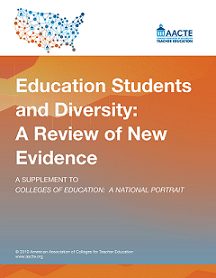 (February 26, 2019, Washington, D.C.) – Education Students and Diversity: A Review of New Evidence, an issue brief released today by the American Association of Colleges for Teacher Education (AACTE), provides new information on student diversity in U.S. colleges of education. As a supplement to AACTE’s signature report, Colleges of Education: A National Portrait, the new issue brief draws from a recently released U.S. Department of Education survey—The National Postsecondary Student Aid Study. It examines the characteristics of students working toward bachelor’s and master’s degrees in education, compares these students to the general student population, and identifies key differences by race/ethnicity.
(February 26, 2019, Washington, D.C.) – Education Students and Diversity: A Review of New Evidence, an issue brief released today by the American Association of Colleges for Teacher Education (AACTE), provides new information on student diversity in U.S. colleges of education. As a supplement to AACTE’s signature report, Colleges of Education: A National Portrait, the new issue brief draws from a recently released U.S. Department of Education survey—The National Postsecondary Student Aid Study. It examines the characteristics of students working toward bachelor’s and master’s degrees in education, compares these students to the general student population, and identifies key differences by race/ethnicity.
The issue brief presents newly available data on the following topics for education students in bachelor’s and master’s degree programs:
- Personal characteristics
- Family circumstances
- Parental education
- Financial status
- Employment
- Attendance patterns
25 Feb2019
By AACTE
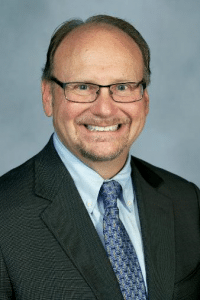 (Feb. 25, 2019, Washington, D.C.) – The American Association of Colleges for Teacher Education (AACTE) welcomes the new chair of its Board of Directors: Kim Metcalf, Ph.D., dean of the College of Education at the University of Nevada Las Vegas (UNLV). During his one-year term, Metcalf will lead the Board through strategic planning in partnership with AACTE President and CEO Lynn M. Gangone.
(Feb. 25, 2019, Washington, D.C.) – The American Association of Colleges for Teacher Education (AACTE) welcomes the new chair of its Board of Directors: Kim Metcalf, Ph.D., dean of the College of Education at the University of Nevada Las Vegas (UNLV). During his one-year term, Metcalf will lead the Board through strategic planning in partnership with AACTE President and CEO Lynn M. Gangone.
“I believe colleges of education are at a turning point,” said Metcalf. “As an association, we can continue to sustain the status quo, with an emphasis on ‘best practices’ based on ideas or outcomes that are nearly 40 years old, or we can focus our efforts on research and innovation that provide our member institutions and our professional colleagues with the tools they need to address the challenges of tomorrow.”
Metcalf has served in his current role at UNLV since 2013, where he has focused on leveraging the unique context of Southern Nevada and the Clark County School District to encourage development of “next generation” approaches to education, educator preparation, and education policy. His research in teacher education and in education policy—particularly his research on school choice—is nationally recognized by the Association of Teacher Educators, the U.S. Office of Management and Budget, and the American Evaluation Association, among others. His publications include the coauthored textbook, The Act of Teaching, now in its sixth edition.
25 Feb2019
By Jerrica Thurman

Over the last three days, AACTE held its 71st Annual Meeting in Louisville, KY. Themed “Sustaining and Advancing the Profession,” the conference convened practitioners and partners from across the nation to present research and highlight practices that address opportunities and challenges in educator preparation, including preparing classroom-ready educators, increasing teacher and college faculty diversity, and framing the role of education in ensuring an engaged citizenry in a liberal democracy.
“Cataclysmic changes in our schools, and indeed our country, are forcing us all to reassess, recalibrate, and dare I say, reimagine and invent in the ways that teaching has always been a reflective practice,” said AACTE President and CEO Lynn M. Gangone during her welcome address. “Together we can turn obstacles into opportunities.”
19 Feb2019
By Katrina Norfleet

Jacob Easley II, dean of the Graduate School of Education at Touro College, recently authored A Way Forward Toward Professionalizing Teacher Education: A Response to the AASCU Teacher Education Task Force Survey, a commentary published in the Educational Renaissance journal. In the paper, Easley reviews the recommendations resulting from the 2016 American Association of State Colleges and Universities (AASCU) Teacher Education Task Force survey. The survey was completed by member presidents, provosts, and their deans of education at public institutions of higher learning to better understand the state of the profession.
The results from the national AASCU survey yielded six recommendations for quality teacher education programs. Of the six, Easley categorizes the first four are as similar to the standards that inform national accreditation by the Council for the Accreditation of Educator Preparation (CAEP):
- Bolster clinical experiences
- Ensure strong university-school partnerships
- Step up recruitment into preparation programs
- Build agreements with community colleges
17 Feb2019
By Katrina Norfleet

AACTE Congratulates 2019 National Superintendent of the Curtis Jones Jr., superintendent of Bibb County School District in Macon, GA.
Jones, was Georgia’s finalist for the honor given by AASA, the School Superintendents Association. He is also an alumnus of AACTE member institutions, Lincoln Memorial University in Tennessee, where he received his Ed.S. from the Carter & Moyers School of Education and NOVA Southeastern in Florida, where he received his Ed.D. from the Abraham S. Fischler College of Education.
Jones joined the Bibb County School District in April 2015. Using his classroom and administrative experiences, he developed the district’s strategic plan, “Victory in Our Schools.” The plan has five goal areas: increasing student achievement; increasing student and stakeholder engagement; increasing teacher and leader effectiveness; being a reliable organization; and learning and growth. This plan drives the district’s continuous improvement efforts through shared accountability for all stakeholders and resource alignment.
17 Feb2019
By Jerrica Thurman
 Robert H. Koff, a former dean of the College of Education at the State of University of New York (SUNY) at Albany, died December 10 in St. Louis. He was 80. Dr. Koff began his career as a faculty member at Stanford University before moving to Chicago in 1972 to become the first dean of education at Roosevelt University. In 1980, he became dean of the College of Education at SUNY. He moved to St. Louis to join the Danforth Foundation in 1988, where he served as senior vice president. In 2003, Dr. Koff returned to higher education and joined Washington University in St. Louis, from which he retired.
Robert H. Koff, a former dean of the College of Education at the State of University of New York (SUNY) at Albany, died December 10 in St. Louis. He was 80. Dr. Koff began his career as a faculty member at Stanford University before moving to Chicago in 1972 to become the first dean of education at Roosevelt University. In 1980, he became dean of the College of Education at SUNY. He moved to St. Louis to join the Danforth Foundation in 1988, where he served as senior vice president. In 2003, Dr. Koff returned to higher education and joined Washington University in St. Louis, from which he retired.
Dr. Koff founded the National Superintendents Roundtable and its predecessor, the Danforth Forum for the American School Superintendent. He authored or co-authored many scholarly articles and books, including The Superintendent’s Fieldbook. He received his undergraduate degree from the University of Michigan at Ann Arbor in 1961 and his doctorate in clinical psychology from the University of Chicago in 1966.
He is survived by his wife, Linda Riekes, his brother, his brother-in-law, four children, eight grandchildren, and a host of colleagues, friends, and admirers.
13 Feb2019
By Jacqueline Rodriguez
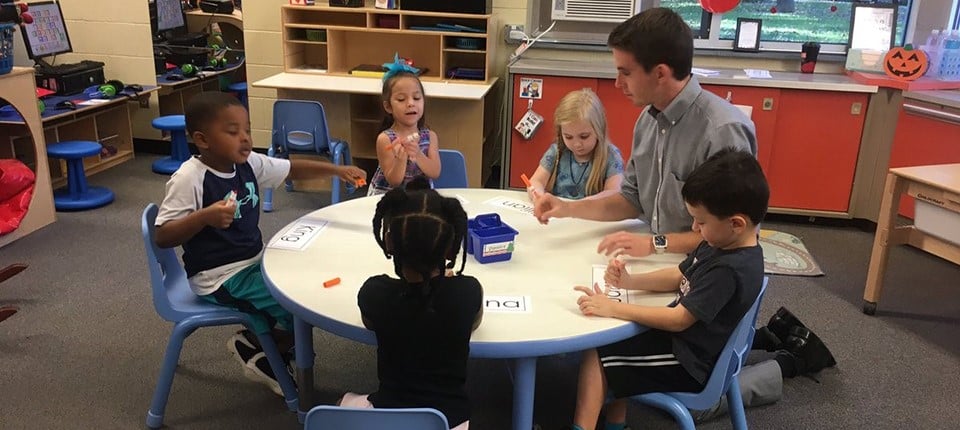 AACTE will launch a Networked Improvement Community focused on Special Education Teacher Recruitment and Retention in May of 2019. The NIC will investigate strategies to address the persistent shortages in the field of special education.
AACTE will launch a Networked Improvement Community focused on Special Education Teacher Recruitment and Retention in May of 2019. The NIC will investigate strategies to address the persistent shortages in the field of special education.
The shortage of special education teachers and the lack of diversity among all teachers have been well documented. Half of all schools and 90% of high-poverty schools struggle to find qualified special education teachers. Forty-eight states and the District of Columbia report special education teacher shortages. However, special education teacher shortages are not evenly distributed across the country. Generally, high poverty areas—both urban and rural—are most likely to experience the most severe teacher shortages, including those in special education. States vary in the degree of shortage they experience.
13 Feb2019
By Jerrica Thurman
 Are you within driving distance to Louisville, KY? Then join AACTE for the 2019 Annual Meeting, February 22-24!
Are you within driving distance to Louisville, KY? Then join AACTE for the 2019 Annual Meeting, February 22-24!
AACTE’s Annual Meeting is your chance to experience the most informative, innovative, and collaborative conference for the educator preparation profession. Connect with approximately 2,000 educators and colleagues from across the country to discuss common challenges and explore new practices and strategies.
You won’t want to miss the full lineup of conference activities – from the preconference programming to a variety of Annual Meeting offerings, including learning labs, general and deeper dive sessions, the Conference Community Center, and the AACTE Gallery.
13 Feb2019
By Ward Cummings
 In our ongoing quest to provide the most timely and useful informational resources to our members, AACTE has added two important new features to the State Policy Tracker page of the website. The State Legislatures Session Chart and StateNet Capitol Journal will help you stay informed about the latest developments in your state and around the country regarding education and education policy.
In our ongoing quest to provide the most timely and useful informational resources to our members, AACTE has added two important new features to the State Policy Tracker page of the website. The State Legislatures Session Chart and StateNet Capitol Journal will help you stay informed about the latest developments in your state and around the country regarding education and education policy.
The Session Chart is an easy to read graphic guide to the legislative calendars of every state. The start and end dates of each legislature, the length of session and the amount of legislative activity in each state will help you maximize the timeliness and effectiveness of your political engagement.
The StateNet Capitol Journal is a 50-state roundup of a wide range of policy matters designed for every type of user. Whether you are interested in a bird’s eye view of education or other policy matter or a deep dive, the Capitol Journal can help you stay up-to-date on the latest state and national legislative and regulatory news.
12 Feb2019
By Jacqueline E. King, Ph.D.

One of the most striking findings of AACTE’s signature report, Colleges of Education: A National Portrait, is the lack of diversity among education students, particularly at the bachelor’s and master’s degree levels. Education Students and Diversity: A Review of New Evidence draws from a recently released U.S. Department of Education survey to examine the characteristics of students working toward bachelor’s and master’s degrees in education, to compare these students to the general student population, and to identify key differences by race/ethnicity.
The issue brief, which will be available for free download as an exclusive AACTE member benefit later this month, presents newly available data on the following topics for education students in bachelor’s and master’s degree programs:
- Personal characteristics
- Family circumstances
- Parental education
- Financial status
- Employment
- Attendance patterns
 Are you a new dean or department chair – or are you simply looking to advance your career as an academic administrator? The AACTE Leadership Academy covers essential topics, from managing finite resources to creating effective development and public relations programs, while helping to cultivate a supportive network of peers.
Are you a new dean or department chair – or are you simply looking to advance your career as an academic administrator? The AACTE Leadership Academy covers essential topics, from managing finite resources to creating effective development and public relations programs, while helping to cultivate a supportive network of peers.


 Kathryn Hildebrand, AACTE member and dean of Idaho State University (ISU) College of Education, passed away on Monday, February 25 after a battle with cancer.
Kathryn Hildebrand, AACTE member and dean of Idaho State University (ISU) College of Education, passed away on Monday, February 25 after a battle with cancer.  During the AACTE 2019 Annual Meeting in Louisville, Yolanda Carter, chair of the
During the AACTE 2019 Annual Meeting in Louisville, Yolanda Carter, chair of the 
 (February 26, 2019, Washington, D.C.) –
(February 26, 2019, Washington, D.C.) –  (Feb. 25, 2019, Washington, D.C.) – The American Association of Colleges for Teacher Education (AACTE) welcomes the new chair of its Board of Directors: Kim Metcalf, Ph.D., dean of the College of Education at the
(Feb. 25, 2019, Washington, D.C.) – The American Association of Colleges for Teacher Education (AACTE) welcomes the new chair of its Board of Directors: Kim Metcalf, Ph.D., dean of the College of Education at the 


 Robert H. Koff, a former dean of the College of Education at the State of University of New York (SUNY) at Albany, died December 10 in St. Louis. He was 80. Dr. Koff began his career as a faculty member at Stanford University before moving to Chicago in 1972 to become the first dean of education at Roosevelt University. In 1980, he became dean of the College of Education at SUNY. He moved to St. Louis to join the Danforth Foundation in 1988, where he served as senior vice president. In 2003, Dr. Koff returned to higher education and joined Washington University in St. Louis, from which he retired.
Robert H. Koff, a former dean of the College of Education at the State of University of New York (SUNY) at Albany, died December 10 in St. Louis. He was 80. Dr. Koff began his career as a faculty member at Stanford University before moving to Chicago in 1972 to become the first dean of education at Roosevelt University. In 1980, he became dean of the College of Education at SUNY. He moved to St. Louis to join the Danforth Foundation in 1988, where he served as senior vice president. In 2003, Dr. Koff returned to higher education and joined Washington University in St. Louis, from which he retired. AACTE will launch a Networked Improvement Community focused on Special Education Teacher Recruitment and Retention in May of 2019. The NIC will investigate strategies to address the persistent shortages in the field of special education.
AACTE will launch a Networked Improvement Community focused on Special Education Teacher Recruitment and Retention in May of 2019. The NIC will investigate strategies to address the persistent shortages in the field of special education. Are you within driving distance to Louisville, KY? Then join AACTE for the
Are you within driving distance to Louisville, KY? Then join AACTE for the  In our ongoing quest to provide the most timely and useful informational resources to our members, AACTE has added two important new features to the State Policy Tracker page of the website. The State Legislatures Session Chart and StateNet Capitol Journal will help you stay informed about the latest developments in your state and around the country regarding education and education policy.
In our ongoing quest to provide the most timely and useful informational resources to our members, AACTE has added two important new features to the State Policy Tracker page of the website. The State Legislatures Session Chart and StateNet Capitol Journal will help you stay informed about the latest developments in your state and around the country regarding education and education policy.